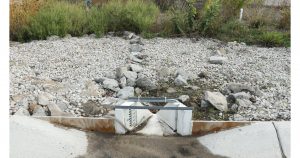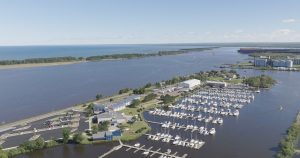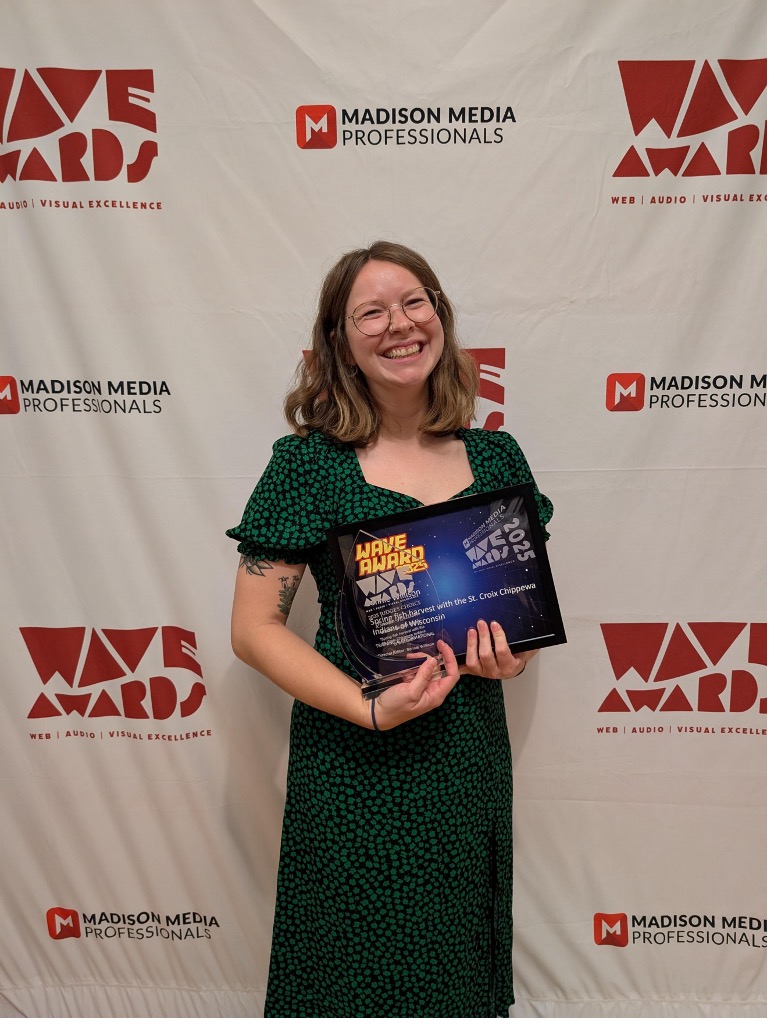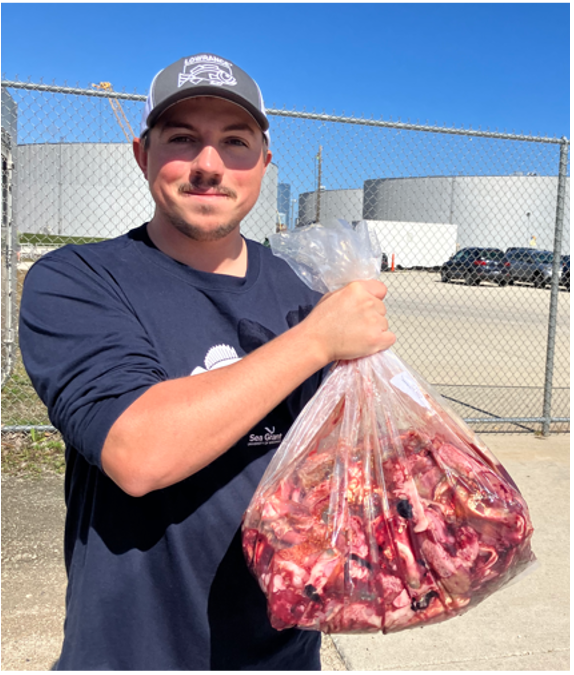Story contributed by Elizabeth Striano, Michigan Sea Grant
When it rains or snows, precipitation that has not been absorbed by the ground washes over the landscape, often collecting pollution on the way. At a marina, this landscape may include parking lots, lift wells, vehicle maintenance areas, storage buildings, and vessel wash-down areas. Using nature-based techniques, like green infrastructure or rain gardens, to manage stormwater can provide significant benefits such as minimizing water pollution into the lake, eliminating nuisance flooding and improving aesthetics.

Michigan Sea Grant staff advised marina owners in their state to install systems like this to slow stormwater and let it infiltrate before hitting the surface water. Photo: Lakehouse Creative
Implementing a green infrastructure project, however, can prove challenging for marinas. They may not have the technical expertise or be unaware of how to secure funding for such efforts. Fortunately, Sea Grant programs can help fill that gap, either alone or via regional networks.
Recently, the Great Lakes Clean Marina Network (GLCMN) – which includes members of the Great Lakes Sea Grant Network (GLSGN) – worked with marinas in Wisconsin, Michigan and Ohio to help support their efforts to write grants, obtain funding, implement projects and communicate to the public. A new video details the effort. The GLCMN connected marinas with technical guidance and environmental education necessary to implement these types of projects. The GLSGN helped leverage expertise in financial and project coordination, funding and communications, including understanding of the regulations.
Marinas participating in the project include:
- Barker’s Island Marina, Superior, Wis.
- Edward C. Grace Memorial Harbor marina, Elk Rapids, Mich.
- Public marina in Charlevoix, Mich.
- Holiday Harbor Marina, Huron, Ohio
- Sandusky Harbor Marina, Sandusky, Ohio
Participating marinas received the support and facilitation they needed for implementation, from beginning to end. In addition, communications and coordination often compose a big part of these projects — and the Sea Grant community already has the capacity for this in addition to understanding the research and ability to communicate it effectively to all audiences.

Barker’s Island Marina in Superior recently installed green infrastructure to keep Lake Superior cleaner. Photo: Danger Bird Productions.
These marinas have become stewards for more widespread adoption and innovation of these practices. These projects also show how Sea Grant networks can help marinas and their communities by connecting them to groups, people, and resources that can help ensure that they have a seat at the local table to advocate for their marina projects.
Interested marinas can learn more here or should reach out to the marina contact at their state’s Sea Grant program.





